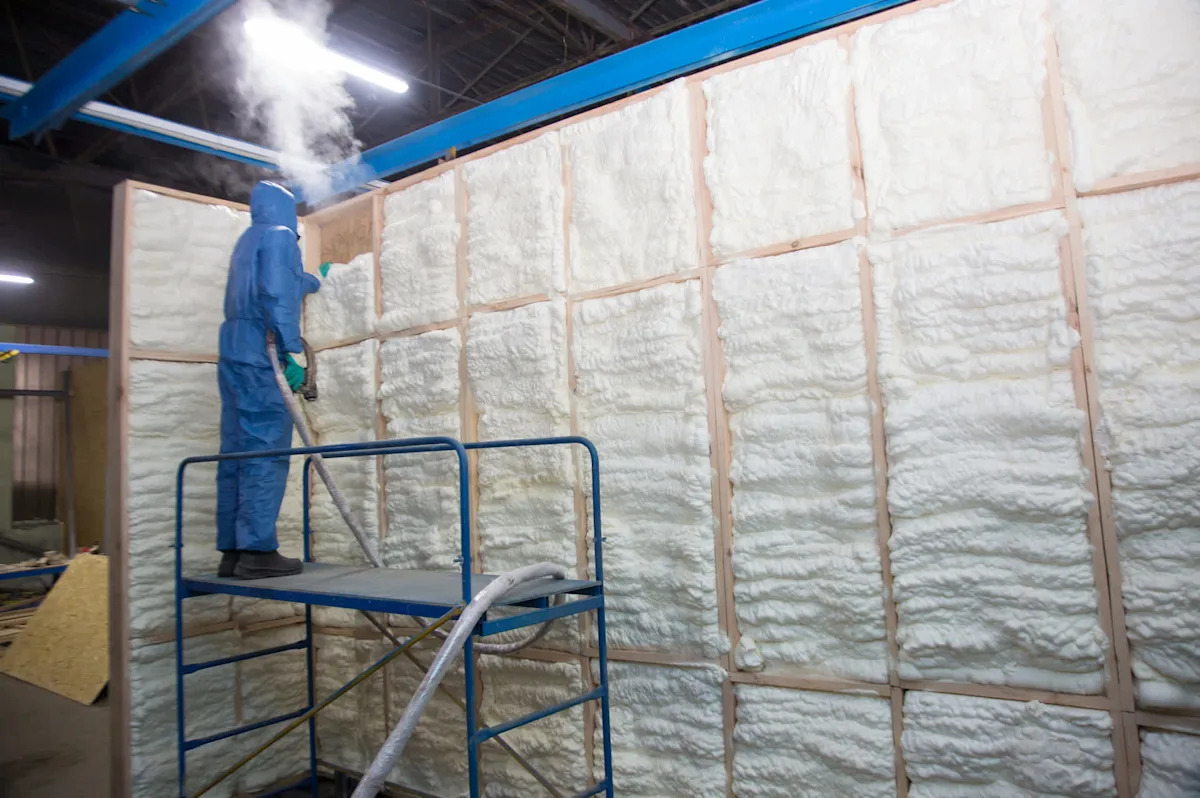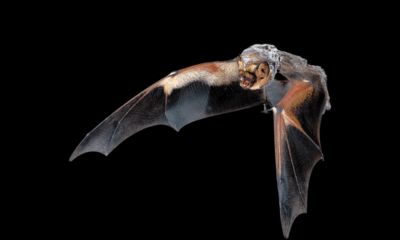Science
Scientists Innovate Insulation Material Using Mushrooms for Sustainability

Scientists at the Institute for Circular Economy of Bio:Polymers (ibp) at Hof University of Applied Sciences in Germany have developed an innovative insulation material derived from mushrooms, aiming for a market-ready product by March 2026. Known as Mycobuild, this project focuses on creating mushroom mycelium boards that can effectively prevent mold growth while providing a sustainable alternative to traditional insulation materials.
The initiative is particularly noteworthy due to the choice of mushrooms native to Germany, including honeydew, fox bolete, and giant mushrooms. These species are selected for their energy efficiency and ability to sprout at room temperature, reducing the need for additional heating or cooling during cultivation. Dr. Katharina Wellmanns, a research associate at Hof University, highlighted the oyster mushroom as a promising candidate due to its rapid growth and ability to form dense networks.
Advantages Over Conventional Insulation
Mycobuild’s mushroom-based insulation presents several advantages compared to traditional options. For instance, cellulose insulation is primarily made from recycled paper, while commonly used materials like foam and fiberglass are derived from plastic. The latter types generate significant waste when they need to be replaced, contributing to long-lasting environmental issues as plastic takes centuries to decompose. By minimizing reliance on plastic, this new insulation has the potential to create healthier living environments.
Project leader Dr. Robert Honke emphasized the benefits of mushroom insulation, stating, “They are compostable, store CO2, and require less energy to produce than conventional fossil-based insulating materials.” In addition, the flexibility in shaping the material allows for industrial scalability, making it a viable option for large-scale production. Lower energy requirements also translate to reduced costs for consumers, promising economic benefits alongside environmental ones.
Addressing Consumer Concerns
Despite its advantages, the project faces challenges, particularly in consumer acceptance. Dr. Honke acknowledged that “many people might be skeptical about an insulation material that is based on fungi, as they fear that this could lead to mold problems in their homes.” To alleviate these concerns, the research team is developing a mineral top layer designed to prevent mold growth and enhance the insulation’s waterproof properties.
With the development of this innovative insulation, the team at Hof University remains optimistic about its potential to reshape the construction industry in Germany and beyond. As they work towards a sustainable future, Mycobuild could serve as a key resource in addressing both environmental and economic challenges.
As mushroom-based insulation nears its launch, it represents a significant step towards eco-friendly construction practices that could benefit both homeowners and the planet.
-

 Technology4 months ago
Technology4 months agoDiscover the Top 10 Calorie Counting Apps of 2025
-

 Health2 months ago
Health2 months agoBella Hadid Shares Health Update After Treatment for Lyme Disease
-

 Health3 months ago
Health3 months agoErin Bates Shares Recovery Update Following Sepsis Complications
-

 Technology3 weeks ago
Technology3 weeks agoDiscover 2025’s Top GPUs for Exceptional 4K Gaming Performance
-

 Technology2 months ago
Technology2 months agoElectric Moto Influencer Surronster Arrested in Tijuana
-

 Technology4 months ago
Technology4 months agoDiscover How to Reverse Image Search Using ChatGPT Effortlessly
-

 Technology4 months ago
Technology4 months agoMeta Initiates $60B AI Data Center Expansion, Starting in Ohio
-

 Technology4 months ago
Technology4 months agoRecovering a Suspended TikTok Account: A Step-by-Step Guide
-

 Health4 months ago
Health4 months agoTested: Rab Firewall Mountain Jacket Survives Harsh Conditions
-

 Lifestyle4 months ago
Lifestyle4 months agoBelton Family Reunites After Daughter Survives Hill Country Floods
-

 Technology3 months ago
Technology3 months agoUncovering the Top Five Most Challenging Motorcycles to Ride
-

 Technology4 weeks ago
Technology4 weeks agoDiscover the Best Wireless Earbuds for Every Lifestyle





















